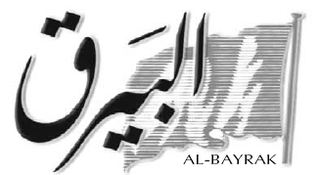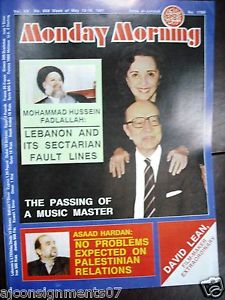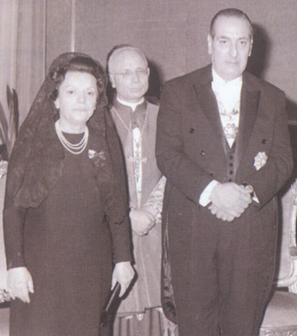Posts and telecommunications have long played an essential role in Lebanon, a small country with an expansive diaspora, a vivid media landscape, and an economy geared toward trade and banking. The sector's history has nonetheless been chaotic, marked by conflict but also, and perhaps most importantly, a deeply rooted legacy of state control, weak competition, and intense politicization. A combination of poor services and high prices culminated in popular protests against the government's attempt, in October 2019, to tax the widely used messaging service WhatsApp. The anger this measure triggered captured a more general sense of dissatisfaction, and contributed to tipping the country into a protracted crisis. Civil unrest coincided with Lebanon's default on its ballooning debt; in the ensuing economic collapse, telecommunications have been among the infrastructure most affected.
The foreign policy of Lebanon reflects its geographic location, the composition of its population, and its reliance on commerce and trade. Until 2005, Lebanon's foreign policy had been heavily influenced by Syria, however beginning with the formation of Hezbollah in 1982, Iran had gradually grown to heavily influence Lebanon.
The music of Lebanon has a long history. Beirut, the capital city of Lebanon, has long been known, especially in a period immediately following World War II, for its art and intellectualism. Several singers emerged in this period, among the most famous Fairuz, Sabah, Wadih El Safi, Nasri Shamseddine, Melhem Barakat, Majida El Roumi, Ahmad Kaabour, Marcel Khalife, and Ziad Rahbani, who—in addition to being an engaged singer-songwriter and music composer—was also a popular playwright. Lydia Canaan was hailed by the media as the first rock star of the Middle East.

The culture of Lebanon and the Lebanese people emerged from various civilizations over thousands of years. It was home to the Phoenicians and was subsequently conquered and occupied by the Assyrians, the Greeks, the Romans, the Persians, the Arabs, the Crusaders, the Ottoman Turks and the French. This variety is reflected in Lebanon's diverse population, composed of different religious groups, and features in the country's festivals, literature, artifacts, cuisine and architecture of Lebanon. Tourism in Lebanon is popular with periods of interruption during conflict.

Najwa Karam is a Lebanese multi-platinum singer-songwriter, producer, fashion icon, and TV personality. Nicknamed Shams el-Ghinnieh, Karam is noted for her powerful Mawwal-skilled vocals. She has gained an international audience due to her distinct blend of traditional Lebanese music and contemporary sounds which has contributed to the spread of the Lebanese dialect in Arabic Music. Having sold tens of millions of records, Najwa Karam is the best selling recording Arabic language singers. She has sold over 60 million records worldwide, and she became the highest selling artist in 1999, 2008, and 2011. In 2023, Karam boasts a social media following of nearly 40 million followers across Facebook, Instagram and X. Karam was mentioned on Forbes 50 Over 50: Europe, Middle East and Africa 2023. She continues to frequently perform throughout the Arab world and internationally.

Deir al-Qamar is a city south-east of Beirut in south-central Lebanon. It is located five kilometres outside of Beiteddine in the Chouf District of the Mount Lebanon Governorate at 800 m of average altitude.
Youssef Saadallah Howayek (1883–1962) was a painter, sculptor and writer from Helta, in modern-day Lebanon.
Leila Karam was a Lebanese actress. Her major contributions were in the 1970s and 1980s in many Lebanese and Egyptian movies, plays and TV series of Tele Liban.

Al Bayrak was a daily newspaper published in Beirut, Lebanon. It was one of the leading and oldest Arabic papers in the country. After being published for a century, the paper ceased publication in August 2011.
Assayad was a weekly news magazine published in Lebanon between 1943 and 2018. It was the first pan-Arab magazine in the country. Its headquarters was in Beirut.

Ricardo Karam is a Lebanese television presenter, producer, talk-show host, author and public speaker. Over the years, he has created several shows, series and documentaries, and founded RK Productions which has taken charge of producing all his projects, as well as Peacomms and TAKREEM, TAKREEM AMERICA and TAKminds.

Monday Morning was an English-language weekly newspaper and then a weekly magazine published in Beirut, Lebanon every Monday. It was purchased by the Dar Alf Leila Wa Leila publishing house which also published the Lebanese Arabic-language daily Al Bayrak and the French-language La Revue du Liban. The print edition ceased as the media company folded.
Samer Karam is a Lebanese entrepreneur, investor, author, and activist. He founded Seeqnce, the first startup accelerator in Lebanon, created the Accelerate conference, and has had a leading role in building Lebanon's startup ecosystem and promoting, advising, mentoring, and investing in startup ecosystems across the world. World renowned tech journalist Monty Munford said Karam is "probably the most influential tech person across the Middle East North Africa (MENA) region."
Edward al-Dahdah (1898-1945) was a Lebanese journalist, essayist and playwright. The scion of a noble Maronite family, the House of al-Dahdah, he was one of the main figures of modern Lebanese theater during the French Mandate era. He was an ardent proponent of the pan-Syrian and pan-Arab causes. He advocated for the adoption of a simplified form of classical Arabic as a mother tongue for the nascent Lebanese nation, as a compromise between classical Arabic and the Lebanese colloquial dialect.

Nina Michel Helou was a Lebanese lawyer and former First Lady of Lebanon from 1964 to 1970. She was the second woman lawyer to be registered with the bar association of the Mandate for Syria and Lebanon, during French administration. Her practice was mainly focused on women and women's issues. Marrying a fellow lawyer, she was the first woman to serve on the Beirut City Council. In 1964, Helou became the First Lady of Lebanon and during her tenure, she oversaw the completion of the Baabda Palace and the renovation of the Beiteddine Palace, as well as a city-wide beautification project. She was also devoted to social welfare programs and charitable organizations, particularly the Lebanese Red Cross.

The Saadé family is Antiochian Greek Orthodox Christian and originates from the Syrian coastal city of Latakia. It owns two vineyards, Château Marsyas in Lebanon and Domaine de Bargylus in Syria which kept their production ongoing despite the chronic instability facing the Middle East.
Ibrahim E. El Khoury was a Lebanese director and producer who was chairman of the Télé Liban television network from 1999 until his death.
Al Hawadeth was a weekly news magazine which was published in Beirut, Lebanon, in the period 1911–2014 with some interruptions. The magazine is known for its publishers and editors: Salim Lawzi who was assassinated in March 1980, and Melhem Karam, who was a veteran journalist.
Melhem Karam (1932–2010) was a Lebanese writer and journalist who owned many publications, including Al Bayrak daily newspaper and Al Hawadeth weekly magazine. He was also the president of the Lebanese Journalists Union for nearly 50 years between 1961 and 2010.








